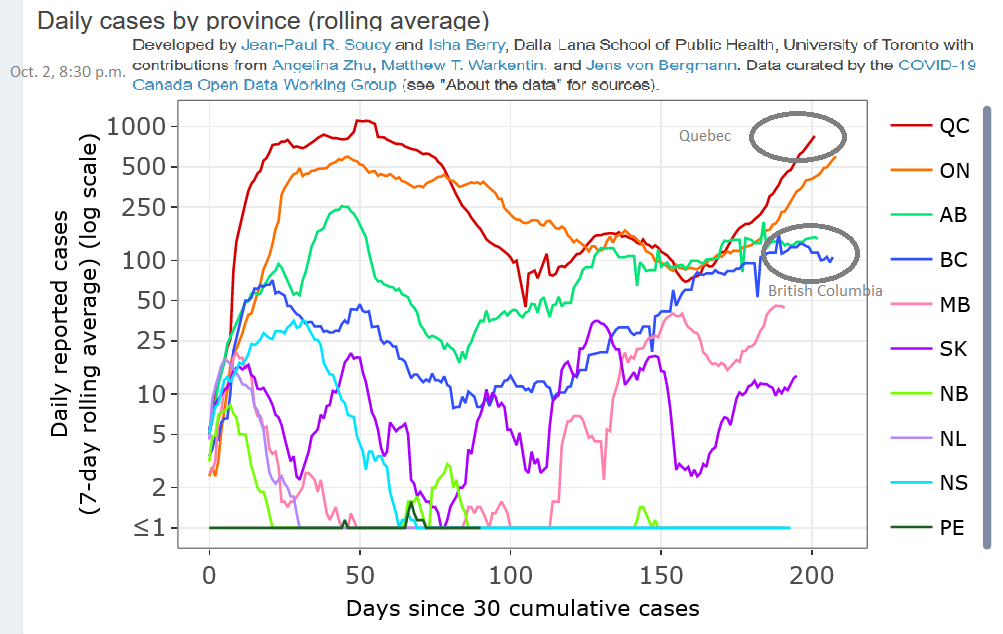
1) Premier François Legault expressed guarded optimism on Friday that Quebec has “reached some level of stabilization” in #COVID19 cases. But a provincial health institute issued dire projections for Montreal’s intensive-care units. In this thread, I will review those forecasts.
2) This is what the institute had to say: “For the regions of Montreal, Laval, the Laurentians, Lanaudière and the Montérégie, projections suggest hospital capacity will be reached at the end of the next month and even more quickly with regard to intensive-care beds.”
3) Health Minister Christian Dubé tweeted his concerns about hospital capacity but didn't address the faster potential impact on the Montreal region’s ICUs. I’ve spoken with the chiefs of two Montreal ICUs, and they say they’re very worried their ICUs could soon be overwhelmed. 
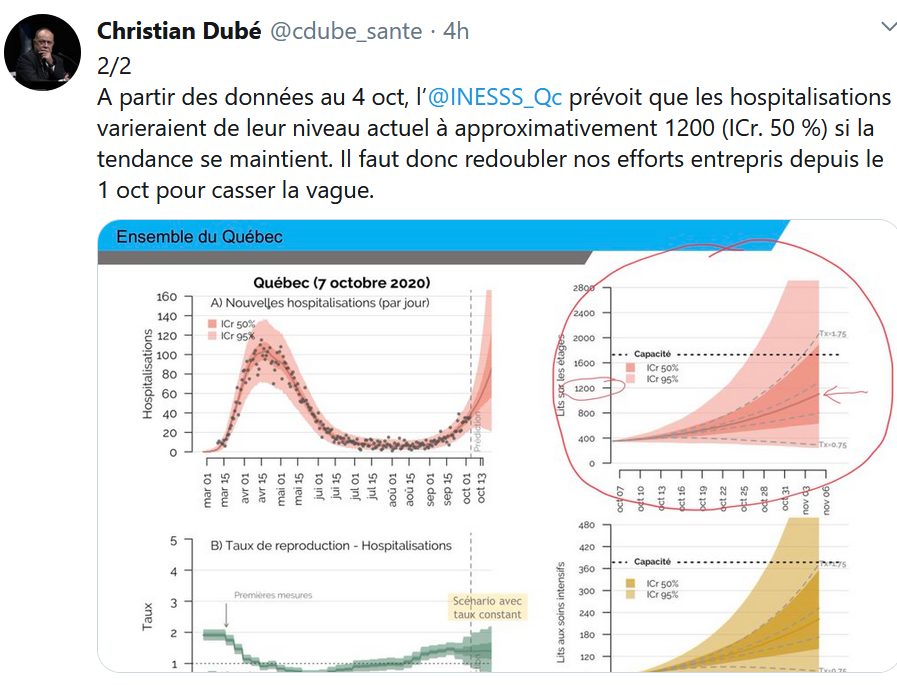
4) In the chart below, #COVID19 is projected to breach the capacity of Montreal ICUs by mid-November. A fraction of Quebecers testing positive this week will be hospitalized in the coming days, and smaller percentage will be treated in ICUs. But the system can take only so much. 
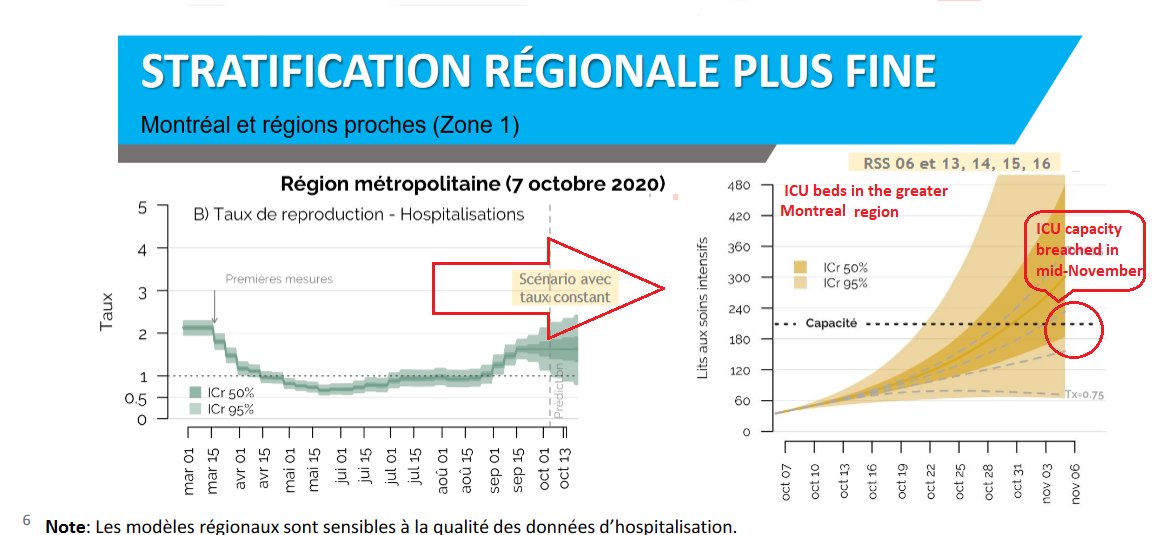
5) During the first wave, Montreal hospitals were able to ramp down surgeries and other clinical activities, easing pressure on the ICUs to accommodate and treat #COVID19 patients. But during this second wave, most hospitals can no longer ramp down as many elective surgeries.
6) On the island of Montreal, authorities have set aside 1,000 out of 5,000 hospital beds for #COVID19 patients. Of that number, only 150 have been reserved for ICU #COVID19 patients. But that allocation of beds was made before Friday’s ICU projections and may have to be revised.
7) Meanwhile, Montreal posted 345 new #COVID19 cases Friday, up from 290 the day before, as the orange line in the chart below indicates. The city’s rolling seven-day average dipped to a still-concerning 168.52 infections per million population from 169.35 the previous day. 
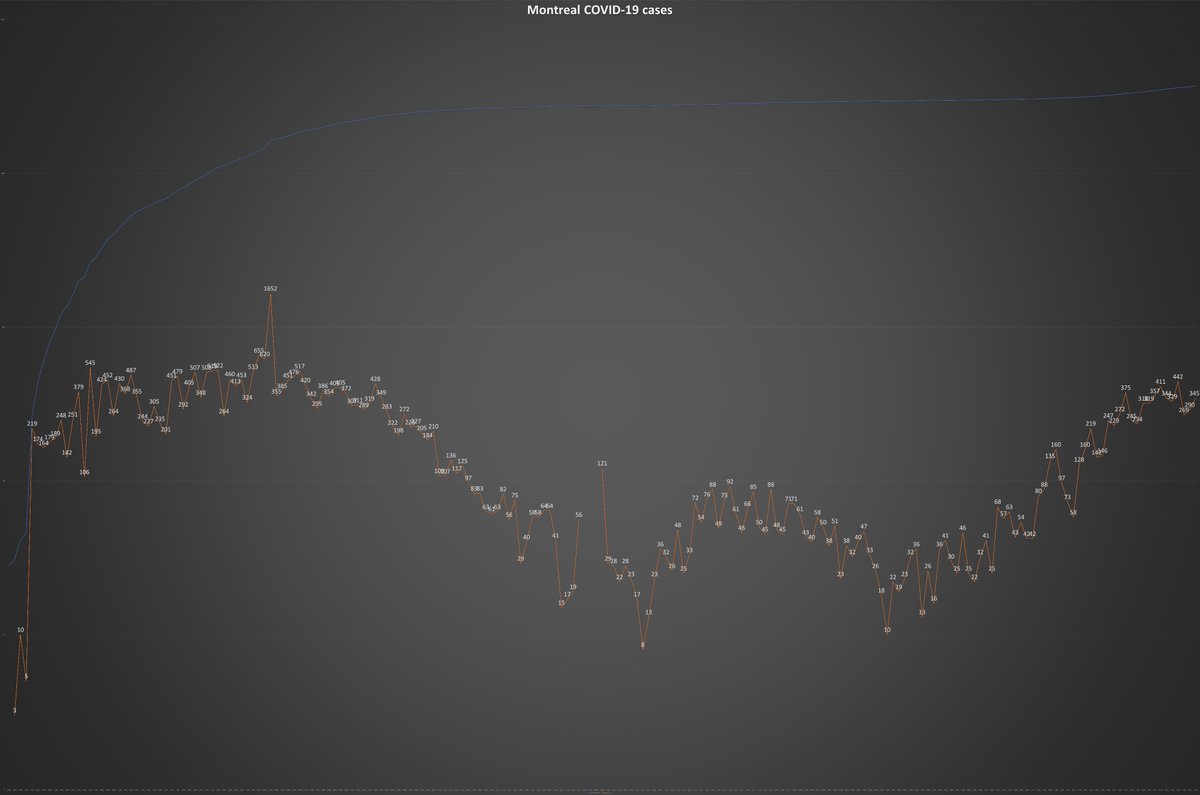
8) At the neighborhood level, the city’s centre health district of Côte-des-Neiges, downtown Métro, Parc-Extension and Outremont reported 40 #COVID19 cases, half as many as five days ago. Efforts may be proving successful in reducing transmission in Outremont’s Hasidic community. 
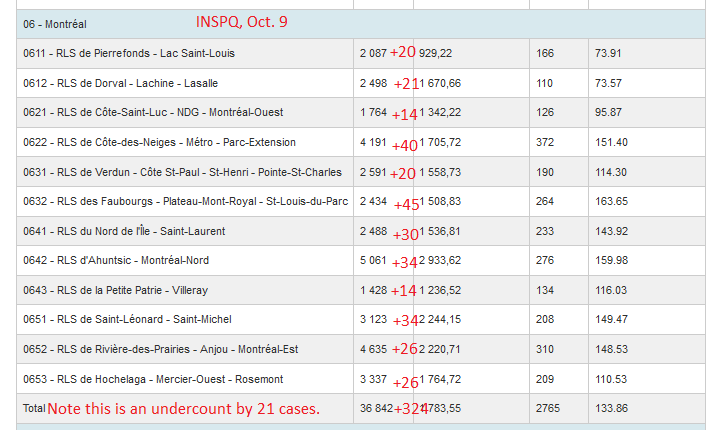
9) But public health authorities are scrambling to contain at least 130 active #COVID19 outbreaks in an epidemiological version of whack-a-mole. Positive #coronavirus results have been observed in at least 156 Montreal schools, according to covidecolesquebec.org.
10) And the metropolis declared three more #COVID19 deaths Friday and 10th in a week, as the chart below shows. The city’s pandemic death toll has climbed to 3,493, greater than Australia (897), Japan (1,616) and Hungary (913) combined. The end. Enjoy a safe, happy Thanksgiving. 
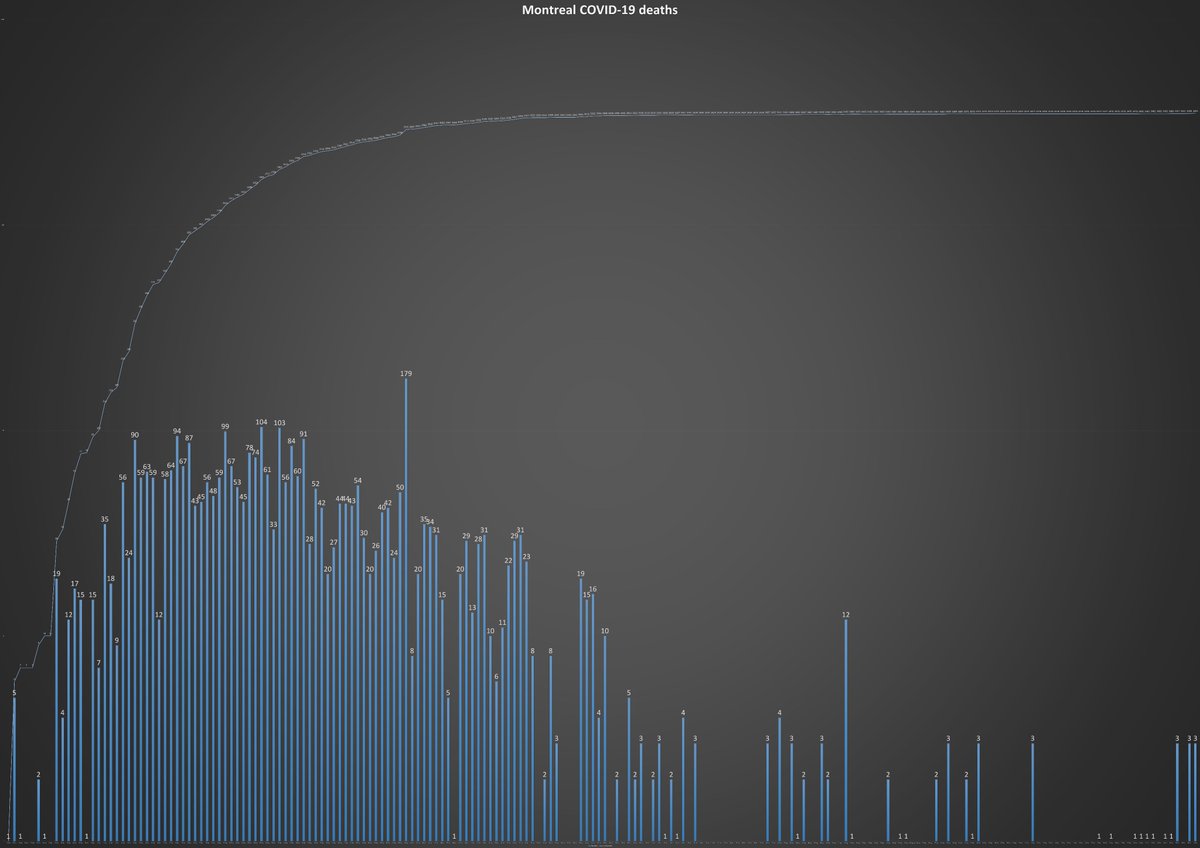
• • •
Missing some Tweet in this thread? You can try to
force a refresh


